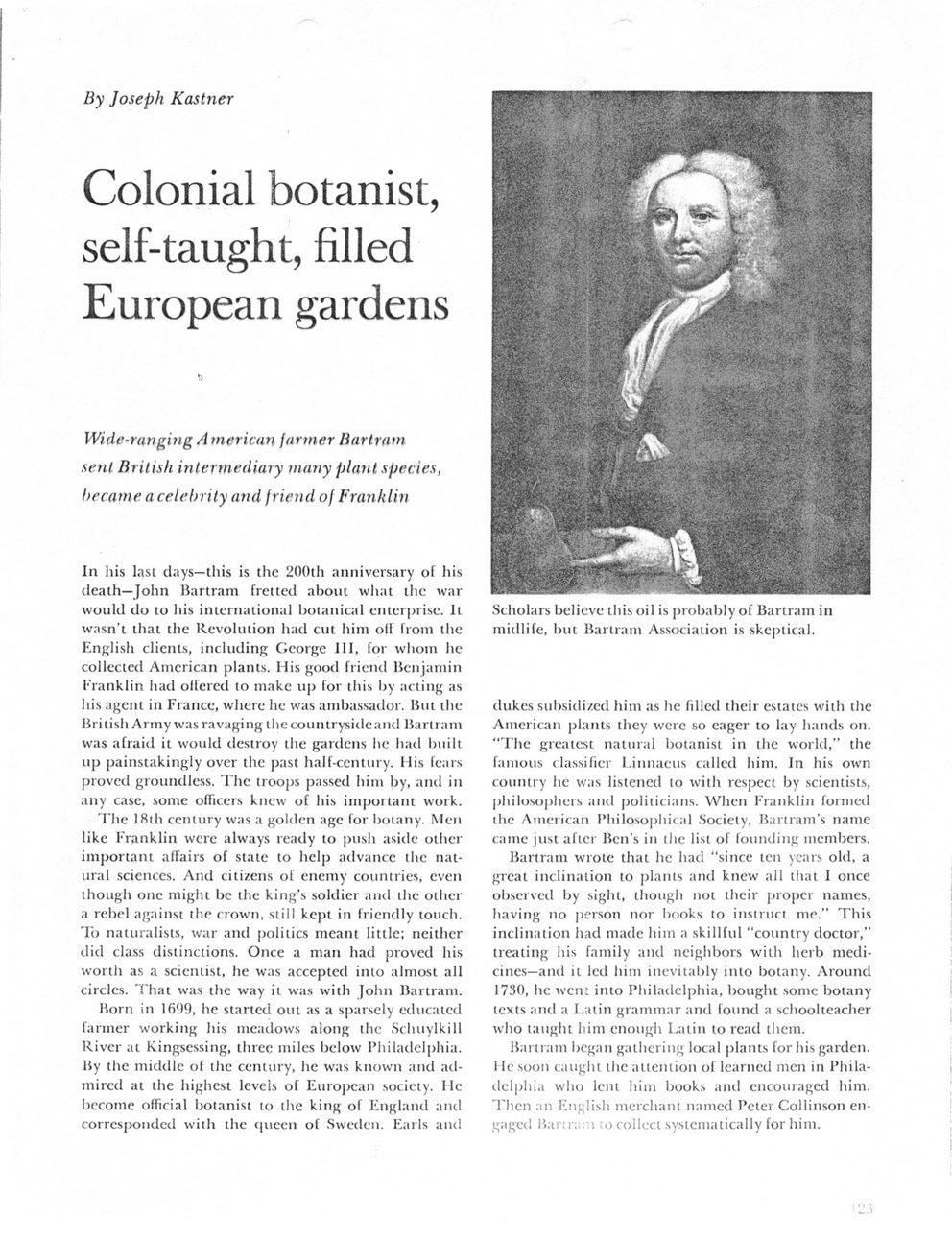This text was obtained via automated optical character recognition.
It has not been edited and may therefore contain several errors.
By Joseph Kastner Colonial botanist, self-taught, filled European gardens Wide-ranging A merican farmer Bartram sent British intermediary many plant species, became a celebrity and friend of Franklin In his last clays?this is the 200th anniversary of his death?John Bartram fretted about what the war would do to his international botanical enterprise. It wasn?t that the Revolution had cut him off from the English clients, including George ill, for whom lie collected American plants. His good friend Benjamin Franklin had offered to make up for this by acting as his agent in France, where he was ambassador. But the British Army was ravaging the countryside and Bartram was afraid it would destroy the gardens he had built up painstakingly over the past half-century. His Icars proved groundless. The troops passed him by, and in any case, some officers knew of his important work. 'File 18th century was a golden age for botany. Men like Franklin were always ready to push aside other important affairs of state to help advance the natural sciences. And citizens of enemy countries, even though one might be the king?s soldier and ihc other a rebel against the crown, still kept in friendly touch. To naturalists, war and politics meant little; neither did class distinctions. Once a man had proved his worth as a scientist, he was accepted into almost all circles. That was the way it was with John Bartram. Born in 1699, he started out as a sparsely educated farmer working his meadows along the Schuylkill River at kingscssing, three miles below Philadelphia. By the middle of the century, he was known and admired at the highest levels of European society. lie become official botanist to the king of England and corresponded with the queen of Sweden. Earls and Scholars believe this oil is probably of Bartram in midlife, but Bartram Association is skeptical. dukes subsidized him as he filled their estates with the American plants they were so eager to lay hands on. ?The greatest natural botanist in the world,? the famous classifier Linnaeus called him. In his own country he was listened to with respect by scientists, philosophers and politicians. When Franklin formed the American Philosophical Society, Bartram?s name came just after Ben?s in the list of founding members. Bartram wrote that he had ?since ten years old, a great inclination to plants and knew all that I once observed by sight, though not their proper names, having no person nor books to instruct me.? This inclination had made him a skillful ?country doctor,? treating his family and neighbors with herb medicines?and it led him inevitably into botany. Around 1730, he went into Philadelphia, bought some botany texts and a Latin grammar and found a schoolteacher wiio taught him enough Latin to read them. Bartram began gathering local plants for his garden, l ie soon caught the attention of learned men in Philadelphia who lent him books and encouraged him. Then an English merchant named Peter Collinson engaged Kanr;;:n (o collect systematically for him.

Bartram Smithsonian-article-re-John-Bartram-1977-p.3